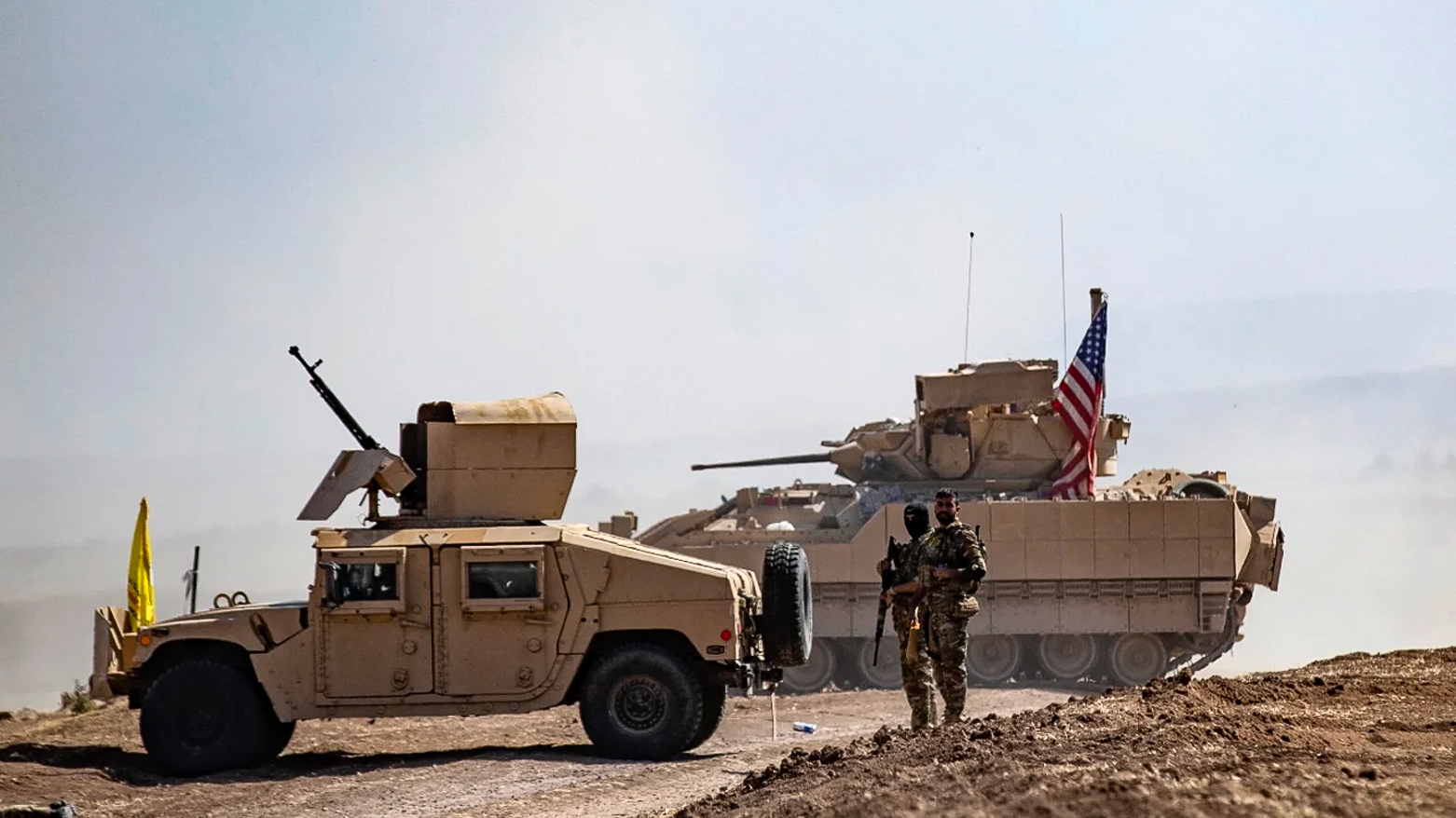SDF Commander: International Coalition Reinforces Presence Around Tishreen Dam, No Withdrawal from Western Kurdistan
“The idea of the Coalition pulling out from Rojava is far from reality,” Mahmoud Habib said, emphasizing that military coordination and advisory efforts between the two forces remain uninterrupted.

By Ahora Qadi
ERBIL (Kurdistan24) — A senior commander from the Syrian Democratic Forces (SDF) has confirmed that coordination with the U.S.-led International Coalition remains intact, dismissing rumors of a complete withdrawal from northeast Syria (Western Kurdistan).
Speaking exclusively to Kurdistan24 on Friday, Mahmoud Habib, a commander within the SDF, stated that joint operations with the Coalition have continued over the past 48 hours, particularly in counter-ISIS campaigns. He revealed that the Coalition is now constructing a new base in Kobani and is planning to deploy additional troops around the Tishreen Dam.
“The idea of the Coalition pulling out from Rojava is far from reality,” Habib said, emphasizing that military coordination and advisory efforts between the two forces remain uninterrupted.
Tishreen Dam Becomes Focal Point of Military Activity
Habib underscored that the new troop deployments near the Tishreen Dam aim to reinforce security following recent Turkish airstrikes that inflicted significant damage on the facility. The strikes, part of Ankara’s ongoing campaign against the SDF, severely disrupted power generation and led to flooding in nearby areas.
Despite U.S. troop reductions in early April — which included the closure of three bases and the withdrawal of approximately 600 personnel — the latest positioning signals a recalibration rather than a disengagement.
A Fragile but Strategic Partnership
According to the most recent quarterly report submitted to the U.S. Congress by the Lead Inspector General for Operation Inherent Resolve (OIR), the Coalition's operational environment in Syria remains highly volatile following the collapse of the Assad regime in December 2024.
Though scaled back, U.S. support to the SDF under the Counter-ISIS Train and Equip Fund (CTEF) continues, supplying non-lethal aid and maintaining advisory efforts in the face of ISIS remnants, clashes with Turkish-backed factions, and emerging threats from local tribal groups.
Coalition’s Balancing Act Amid Turkish Pressure
The report also highlighted Washington’s mediation efforts between the SDF and Turkish-aligned militias, which led to limited de-escalation. Ankara has reportedly expressed conditional openness to cooperating with the new Syrian interim authorities and has even floated the possibility of managing ISIS detention centers if necessary.
Meanwhile, the damage to critical infrastructure such as the Tishreen Dam has prompted the Coalition to prioritize securing these zones, making it clear that some strategic locations remain indispensable to ongoing stabilization efforts.
No Strategic Exit
In defiance of persistent speculation, Habib’s remarks reaffirm the Coalition’s enduring presence in key areas of Western Kurdistan. “The narrative of withdrawal misrepresents the facts on the ground,” he told Kurdistan24. “The fight against ISIS and the protection of vital infrastructure continue — shoulder to shoulder with our allies.”
